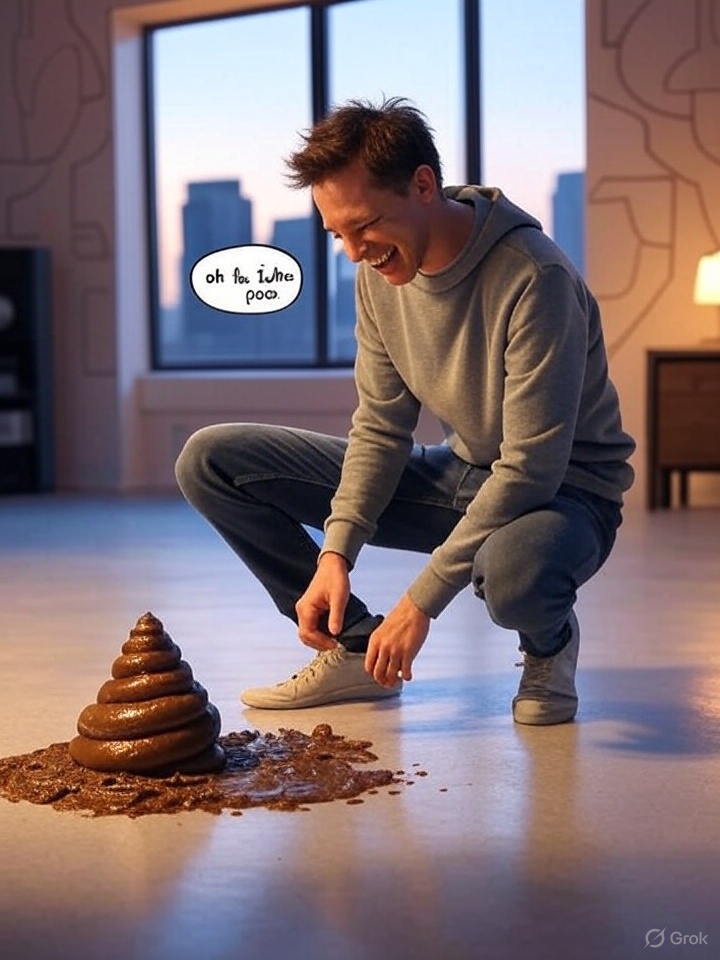Finally the owner lost patience and warned the horse: “Either you win this afternoon or you’ll be pulling a milk wagon tomorrow morning.”
That afternoon, the horse was lined up with the others in the starting gate. As the stalls opened, the rest of the field raced away, but as the gate was removed, the owner saw his horse fast asleep on the track.
Angrily he ran over, kicked the horse and yelled: “Why are you sleeping?”
The horse wearily lifted its head and replied: “I have to get up at three in the morning.”
Joke Poo: The Sleepy Sheepdog
A farmer had a sheepdog that had never herded a single sheep successfully. Tired of the dog’s uselessness, the farmer finally threatened, "Either you herd those sheep into the pen by tonight, or you’re getting shipped off to be a house dog tomorrow!"
That evening, the sheep were scattered all over the field. As the sun began to set, the farmer watched as the sheepdog lay down right in the middle of the flock and closed its eyes.
Furious, the farmer stomped over, prodded the dog with his boot, and roared, "Why are you sleeping? You’re supposed to be herding!"
The sheepdog mumbled, without opening its eyes, "But I have to learn to count them first. I heard house dogs get treats for every sheep they count."
Alright, let’s saddle up and analyze this joke.
Joke Dissection:
- Premise: A racehorse consistently loses races, leading to an ultimatum.
- Setup: The owner threatens the horse with a life of pulling a milk wagon. The race begins, but the horse remains asleep.
- Punchline: The horse’s explanation is that it needs to wake up early for the milk wagon job.
- Humor Mechanism: Irony and incongruity. The expectation is that the horse would be motivated to win the race and avoid the undesirable job. The surprise is that the horse has already accepted its fate and is prioritizing its new, pre-dawn schedule. The joke also anthropomorphizes the horse, giving it human-like reasoning.
Key Elements:
- Racehorse: Symbol of speed, competition, and potential wealth.
- Milk Wagon: Symbol of slow, repetitive labor, and lower status. A relic of the past.
- Sleeping Horse: Unexpected behavior, defying the inherent nature of a race.
- Anthropomorphism: Assigning human qualities to the horse.
Comedic Enrichment:
Let’s leverage the key elements to create a new joke/observation, incorporating some related interesting facts.
New Joke/Observation:
You know, they say horses are intelligent. Maybe too intelligent for the racing industry. I saw a horse at the track the other day reading "Das Kapital" before a race. I asked him why he wasn’t warming up. He looked at me with a weary sigh and said, "What’s the point? Even if I win, I’m just contributing to the exploitation of my own labor. Besides, I’ve already unionized the Clydesdales down at the brewery. Solidarity, brother. Pass the oats."
Humor Explanation and Enrichment:
- Connects to Original: Continues the anthropomorphism of the horse, but raises it to a higher level of social awareness.
- Interesting Tidbit Integration:
- "Das Kapital" and Exploitation: References Karl Marx’s critique of capitalism, highlighting the horse’s (ironic) understanding of its own situation.
- Clydesdales and Unionization: Clydesdales are traditionally associated with pulling beer wagons (a modern twist on milk wagons). The idea of them unionizing is absurd but plays off the history of labor movements.
- Additional Layer of Humor: The contrast between the horse’s sophisticated vocabulary and the simple, animalistic desire for oats. The joke now has a level of political satire that the original was missing.
Why This Works:
By taking the core elements of the original joke (anthropomorphic horse, a job it dislikes, an unexpected response) and adding relevant factual/historical elements (Marx, Clydesdales, labor unions), we create a more complex and layered joke. It’s not just about a lazy horse; it’s about a horse with a socio-economic perspective, however absurd. The element of surprise is still there, but it’s amplified by the unexpected depth of the horse’s rationale.


